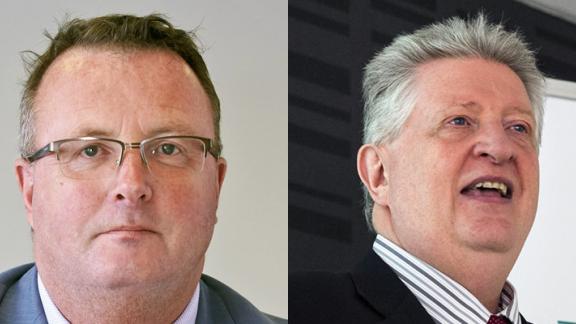NHS Reset: Looking after the wellbeing of the people who look after us
In this blog, part of a series of comment pieces from NHS Confederation leaders, members and partners, Simon Blake shines the spotlight on mental health needs during and after the pandemic.
Mental Health First Aid (MHFA) England is a social enterprise with a vision to improve the mental health of the nation. Our mission is to train one in ten of the adult population in mental health awareness and skills: one in ten to creates a cultural tipping point where mental health stigma is significantly reduced and people can talk about mental health openly without fear of prejudice, and get help should they need it.
There will be significant mental health impacts during and post COVID-19. The restrictions to our way of life, isolation and loneliness, a heightened uncertainty including worries about job security, finances and health are all factors which have the potential to negatively impact our mental health. Some will have experienced bereavement either directly related to COVID-19 or during the pandemic with tight restrictions on funerals impacting on how people grieve.
NHS staff have worked throughout the pandemic, often under intense pressure. At the same time a bright spotlight has thankfully been shone on racial inequalities and racial justice – with disproportionate numbers of people of colour dying from COVID-19, and the global response for justice and equity following the killing of George Floyd in the USA.
There is a lot to be troubled by. And we are. The YouGov poll shows an increase in anxiety: over 60 per cent of the adult population has felt anxious about COVID-19.
We also know that despite the incredibly difficult situations we have shown time and again we are hugely adaptable, resourceful and community spirited. We have demonstrated a willingness and capability to help each other in our communities both informally and through structured volunteering.
The MHFA England community has played a number of different roles including using our mental health first aid skills to support colleagues and our families. Hundreds of instructor members are volunteering to support the mental health of NHS staff through Our Frontline. We have worked with NHS England to train those working with people experiencing homelessness and are supporting the Royal Voluntary Service to train the Community Response Plus Volunteers.
At the same time mental health first aiders across NHS trusts are championing wellbeing and mental health at work and supporting their colleagues. There are close to 300 MHFA England accredited in-house instructors training mental health first aiders, across at least 60 NHS trusts and in NHS England.
Looking ahead
Lockdown has been difficult, but the message was straightforward - stay at home. As we transition into the next phases which may include the dialling up and down of lockdown rules, it becomes more complicated and the impact on people’s mental health intensifies. While some people are excited about lockdown restrictions easing – others have anxieties. This is not being helped by mixed messaging.
There will doubtlessly be a surge in uptake of, and growing waiting lists for, mental health support. MHFA England’s role is to train people to have early mental health conversations, signposting to selfcare and other support and in many cases preventing people from needing clinical services. The NHS-endorsed Every Mind Matters tool is an example of this and MHFA England was proudly part of developing the content for.
Workplaces will do well to utilise their mental health first aiders, particularly in health services where frontline staff have been working under intense pressure. A significant number of these will need an outlet to discuss the emotional impact of their experiences during this period, which we know contributes to reducing longer-term trauma. All workplaces should be proactive in ensuring employees know where they can access support, through employee assistance programmes or external support services.
COVID-19 has led to significant digital transformation in many organisations. We have also had a crash course in emotional literacy since the beginning of the pandemic. I hope we have had a national awakening about the importance of wellbeing and mental health. This is a gift and we must continue to focus on the wellbeing of ALL employees as we move forward to the new phase.
It has long been true that the NHS must do more to support the supporters. Health Education England published an important report, the NHS Staff and Learners’ Mental Wellbeing Commission in 2019, while Our Frontline, the mental health support service for NHS staff, is a brilliant immediate response to COVID-19.
As we plan for the future, every NHS trust, whatever shape and size, must pay forensic attention to how the mental health of staff at all levels is supported, and apply a wellbeing lens to systems, structures, policies and processes.
TV doctor, Dr Ranj, told me in a podcast that asking for help isn’t always valued in the NHS. That must change. Let’s make sure that one positive legacy of COVID-19 is putting staff mental health and wellbeing firmly and meaningfully on the NHS agenda to avoid workplace stress, burn out and people exiting the profession early. Let’s ensure the NHS is a shining example in mental health and an appealing long-term career choice.
MHFA England looks forward to playing our part in collaborating for improved mental health across the system.
Simon Blake is chief executive of MHFA England. Follow them on Twitter @Simonablake and @MHFAEngland
Mental health is one of the key themes of the NHS Reset campaign.



